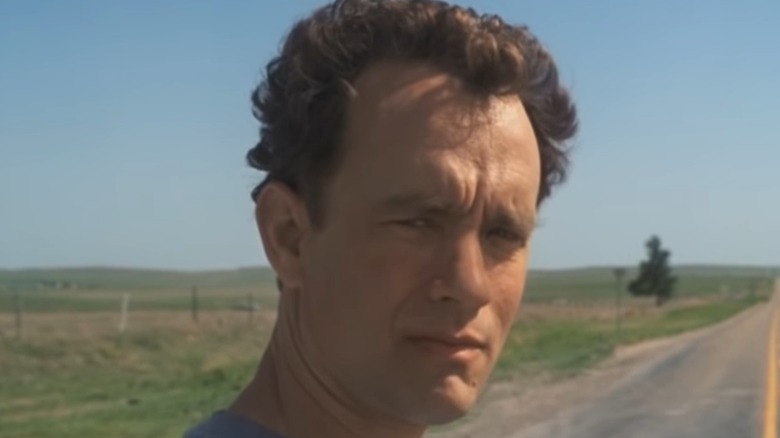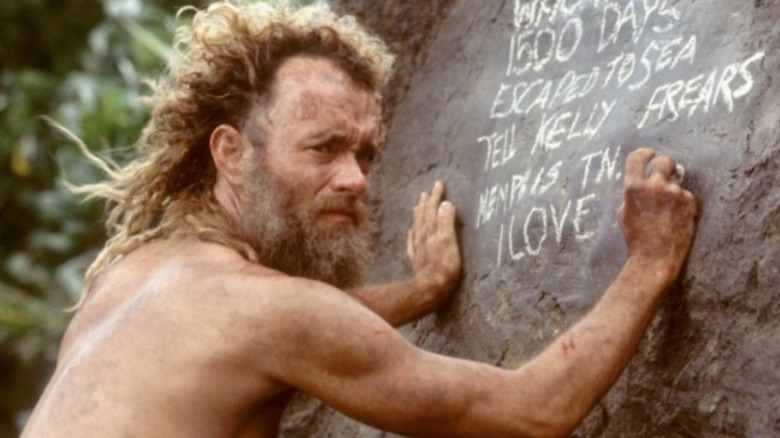Is Cast Away Based On A True Story?
For decades, Tom Hanks has been involved in numerous memorable roles, including the lead for 2000's "Cast Away." Directed by Robert Zemeckis and written by William Broyles Jr., Hanks stars as FedEx Systems Analyst Chuck Noland, who winds up stranded on a desert island in the South Pacific after a plane crash. The film revolves around Noland's four-year plight of survival on the island and loneliness, save for a volleyball Noland names Wilson.
"Cast Away" is regarded as one of Hanks' best films, earning $429 million in the Box Office (via Box Office Mojo), critical praise, and several award nominations and wins, both for the film and Hanks. However, during his four years on the island, Noland's physical and mental transformation felt real to many of us. While the credit to that deservingly goes to Hanks' performance in the movie, which also permanently damaged his body, "Cast Away" still made people ask if its premise is based on a true story.
It turns out that the film isn't based on one particular event. Instead, real-life experiences and a curious idea inspired it.
A news article on FedEx and real isolation inspired Cast Away
According to Tom Hanks, "Cast Away" partially came from an idea the actor had while reading a news article about FedEx. During an Actor's Roundtable for The Hollywood Reporter, the actor said he began wondering what would happen if the FedEx 747's that fly over the Pacific Ocean three times a day would suddenly crash. This idea expanded into the movie's survival theme.
"I made Cast Away because I wanted to examine the concept of four years of hopelessness, in which you have none of the requirements for living—food, water, shelter, fire, and company," Hanks said.
"Cast Away" is also based on the real-life research of screenwriter William Broyles Jr., who spent a few days alone on an isolated beach near Mexico's Sea of Cortez. As he told the Austin Chronicle, Broyles speared for stingrays, tried opening a coconut, and spent a day and a half trying to light a fire by rubbing two sticks together. Along with these physical challenges, Broyles also wrestled with the concept of loneliness, which is another main idea explored by the movie. This was reinforced when Broyles actually found a volleyball on the beach, named it Wilson, and began communicating with it. It later led Broyles to create what he describes as his "favorite character in the movie."
In addition to Hanks' idea and Broyles' research, "Cast Away" may have also taken inspiration from other real-life explorers. As ScreenRant highlighted, one example was Scottish castaway Alexander Selkirk, who wound up on a deserted Pacific Island in the 1700s and served as the real-life inspiration for Daniel Defoe's novel "Robinson Crusoe."

